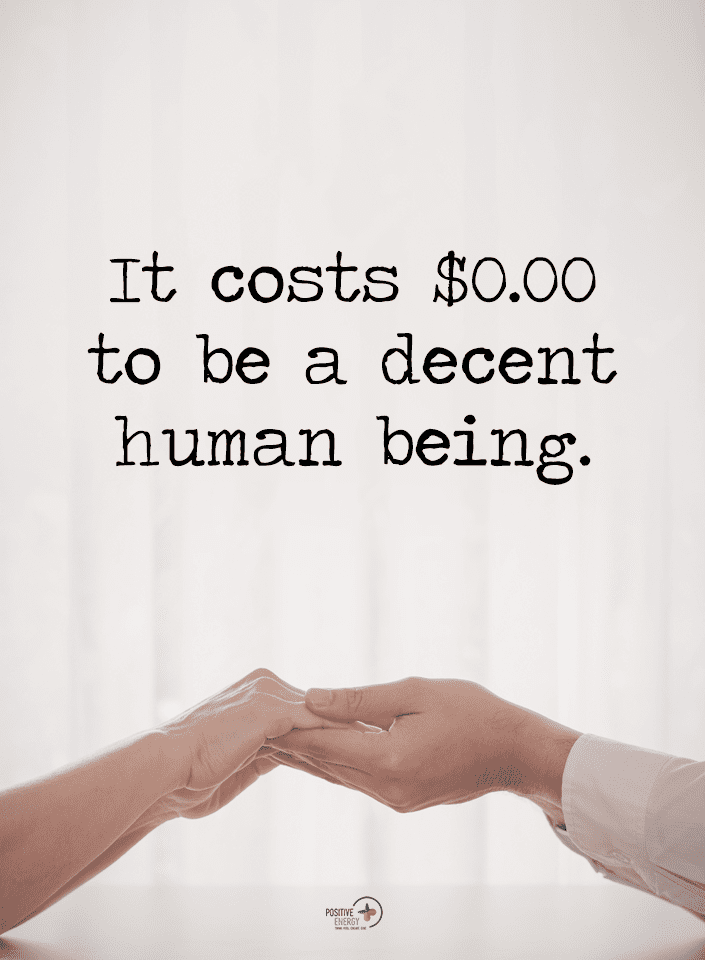Understand why it’s best to keep your distance from your ex-.
Have you ever wondered why seeking intimacy after a breakup feels so compelling yet often leads to more heartache than healing? The end of a romantic relationship leaves a complex emotional void filled with sorrow, loneliness, and, sometimes, a sense of relief. In this vulnerable state, the allure of intimacy – be it rekindling a connection with an ex or seeking new encounters – can seem like an appealing balm for emotional wounds. However, while understandable, this pursuit is fraught with potential pitfalls that can impede the healing process.
From understanding the emotional vulnerability that drives the desire for post-breakup intimacy to examining its effects on personal growth and future relationships, this article seeks to offer valuable insights for those navigating the challenging path of recovery and self-discovery after a relationship’s end.
Why Intimacy With an Ex- Is Always a Bad Idea
Emotional Vulnerability and Rebound Intimacy
The emotional landscape is often raw and unsettled after a breakup. This heightened state of vulnerability can make the idea of entering into a new intimate relationship – commonly known as a rebound – seem like an attractive option. But what exactly drives this inclination, and what are the potential consequences?
The Lure of Emotional Comfort
Post-breakup, individuals often experience a profound sense of loss and loneliness. The human psyche naturally craves comfort and connection during such times. Intimacy can momentarily fill the emotional void left by a former partner. It’s a natural, albeit often misguided, attempt to regain a sense of normalcy and emotional security.
The Reality of Rebound Relationships
Rebound relationships are typically characterized by their quick formation following a breakup. While they can provide temporary solace, they often stem more from a place of neediness than genuine emotional connection. The risk here is twofold: firstly, these relationships can prevent individuals from fully processing their breakup, and secondly, they can lead to a cycle of dependency, where one’s self-worth and emotional stability become tied to another person.
Emotional Confusion and Delayed Healing
Engaging in a new intimate relationship soon after a breakup can create a complex web of emotions. It’s common for individuals to project feelings and expectations from their past relationship onto the new one, leading to confusion and misaligned intentions. This emotional entanglement can significantly delay the healing process, hindering the individual’s ability to reflect on and learn from their past relationship. Instead of moving forward, they may be stuck in a loop of unresolved feelings and unmet needs.
The Importance of Emotional Space
Creating emotional space after a breakup is crucial for healing and growth. This period allows individuals to grieve, reflect, and rebuild their sense of self outside the context of a romantic relationship. By avoiding the rush into new intimate encounters, one can more effectively process their emotions, develop a clearer understanding of their needs and desires, and ultimately make healthier relationship choices in the future.
While the temptation to seek intimacy after a breakup is understandable, it’s important to recognize the potential risks associated with rebound relationships. They can lead to emotional confusion, hinder healing, and prevent personal growth. Taking time to heal, understand oneself, and establish emotional independence is key to forming healthier and more fulfilling relationships in the future.
The Illusion of Comfort and Familiarity with an Ex-
After a breakup, the draw towards intimacy with an ex-partner or someone new can be powerful. It comes from the desire for the comfort and familiarity that was lost. However, this pursuit can be misleading, leading to a cycle of emotional turmoil rather than true healing.
Seeking Comfort in Familiarity
The end of a relationship disrupts the comfort and routine of a partnership. In this state of emotional upheaval, there’s a natural inclination to seek out what is familiar. Intimacy with an ex-partner, in particular, can appear as a safe haven, offering a semblance of lost comfort and closeness. However, this is often an illusion, masking the underlying issues that led to the breakup.
Mistaking Physical Closeness for Emotional Resolution:
Engaging in intimacy with your ex- post-breakup can create a false sense of resolution. Physical closeness can momentarily soothe the pain of separation, but it does not address the deeper emotional and relational issues. This confusion between physical and emotional closeness can lead to a cycle of on-again, off-again encounters where the root problems remain unresolved.
The Cycle of On-Again, Off-Again Relationships:
This cycle means repeated breakups and reconciliations, often fueled by post-breakup intimacy. It creates a pattern of instability and dependency, preventing both parties from moving forward. Each reconciliation can reignite hope, but the same problems are likely to resurface without addressing the underlying issues, leading to further emotional distress.
The Need for Emotional Closure:
True healing post-breakup requires emotional closure, which is difficult to achieve if intimacy continues. Closure involves:
- Understanding and accepting the end of the relationship.
- Learning from its successes and failures.
- Emotionally detaching from the partner.
Intimacy after a breakup can blur these boundaries, making it challenging to achieve the necessary emotional separation for healing. In fact, boundaries are an important facet of self-care – perhaps even more so after a breakup.
While the familiarity of an ex-partner can seem comforting in the aftermath of a breakup, it’s important to recognize the potential for this to create a harmful cycle of dependency and unresolved issues. True healing requires emotional closure and the establishment of boundaries, which is often hindered by post-breakup intimacy. Embracing this period of solitude and self-reflection can set you up for healthier relationships in the future.
Impact on Self-Esteem and Personal Growth
The period following a breakup is not just about navigating the loss of a relationship but also about personal growth and rebuilding self-esteem. Engaging in intimacy shortly after a breakup can significantly impact these crucial aspects of recovery.
Self-Esteem and Intimacy Post-Breakup
After a breakup, an individual’s self-esteem can be particularly fragile. Seeking intimacy as a means of validation or to boost self-worth can be tempting. However, this approach is often counterproductive. It can lead to emptiness and low self-worth when the intimacy doesn’t translate into the emotional support and validation one seeks. This cycle can reinforce negative self-perceptions and dependency on external validation for self-esteem.
The Role of Solitude in Healing
Solitude can be a powerful tool for healing and personal growth. It provides the space to reflect on the past relationship, understand personal contributions to its dynamics, and recognize patterns that may need to change. This time alone is crucial for developing a stronger, more independent sense of self. Intimacy immediately after a breakup can distract from this reflective process, delaying personal growth and the development of a healthy self-image.
Learning from Past Relationships
Every relationship offers valuable lessons. The period post-breakup is an opportunity to analyze these lessons and apply them to future relationships. This process requires a clear, unbiased perspective, which can be clouded by jumping into new intimate relationships too soon. Without learning from past experiences, repeating the same mistakes is risky.
Establishing a Foundation for Future Relationships
The journey of self-discovery and growth post-breakup lays the groundwork for healthier future relationships. Understanding one’s needs, boundaries, and values is essential in forming fulfilling and respectful connections. Premature intimacy can disrupt this process, leading to future relationships that are built on unresolved issues and unmet needs.
While pursuing an interaction after a breakup might seem like a pathway to emotional recovery, it can adversely affect self-esteem and personal growth. Embracing a period of solitude and reflection is key to a stronger sense of self and establishing a foundation for healthier and more fulfilling relationships in the future.
The Complications of Emotional Ties
Navigating the aftermath of a breakup means untangling deep emotional ties, which can be complicated by post-breakup intimacy. This section explores how intimacy can hinder detachment and the importance of establishing clear emotional boundaries for healing.
Intimacy as a Barrier to Emotional Detachment
Ending a romantic relationship requires a period of detachment, where emotional ties are gradually loosened. Intimacy after a breakup can significantly complicate this process. It can reignite old feelings, create false hope for reconciliation, and blur the lines between past and present emotions. This entanglement makes it difficult to move on and can prolong the pain and confusion associated with the breakup.
The Challenge of Moving On
Moving on from a past relationship is a critical step in the healing journey. It involves not only physical separation but also emotional and mental detachment. A hookup after a breakup can create a sense of being stuck, hindering the ability to form new, healthy emotional connections. It can also lead to limbo, where neither partner is fully committed to moving forward or letting go.
Establishing Boundaries for Emotional Health
One of the key aspects of recovering from a breakup is establishing and maintaining healthy boundaries. That includes setting limits on physical and emotional interactions with an ex-partner. Engaging in post-breakup intimacy often crosses these boundaries, leading to confusion and emotional turmoil. Clear boundaries are essential for both parties to heal and to respect each other’s emotional space.
The Role of Self-Care in Emotional Separation
Self-care plays a vital role in the process of emotional separation. It involves prioritizing one’s own emotional needs and well-being. Engaging in habits that promote self-awareness, self-compassion, and emotional resilience can be far more beneficial than seeking comfort in intimacy. This focus on self-care helps build a stronger, more independent emotional foundation, which is essential for future relationships.
While the temptation of your ex- after a breakup is understandable, it’s important to recognize its potential to complicate emotional ties and hinder the healing process. Focusing on emotional detachment, establishing clear boundaries, and prioritizing self-care are crucial steps toward a healthy recovery and readiness for future relationships.
Final Thoughts on Avoiding Intimacy with Your Ex
While the pursuit of intimacy after a breakup may seem like a natural response to the void left by a lost relationship, it often leads to more complications than comfort. This article has explored the various dimensions of why engaging in intimacy post-breakup can be detrimental, from exacerbating emotional vulnerability to impeding personal growth and self-esteem. It has highlighted the importance of emotional detachment, establishing healthy boundaries, and prioritizing self-care and introspection.
The journey of healing and recovery post-breakup is a personal one. Indeed, it demands time, patience, and self-compassion. Embracing this period of solitude can be challenging, but it is essential for true healing and preparing oneself for healthier, more fulfilling relationships in the future. Remember, the focus should be building a stronger, more resilient self capable of engaging in relationships rooted in mutual respect, understanding, and genuine connection.

















 Community
Community

